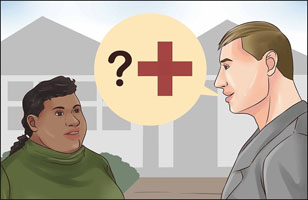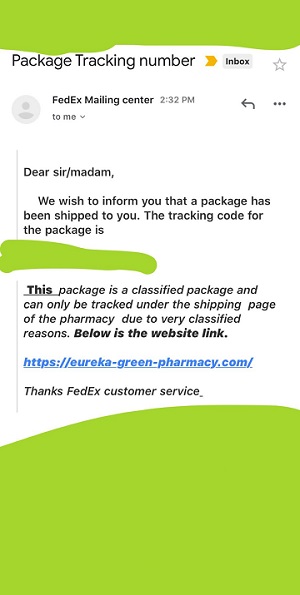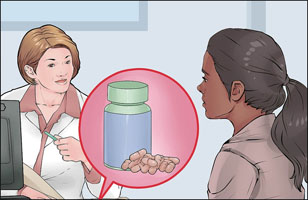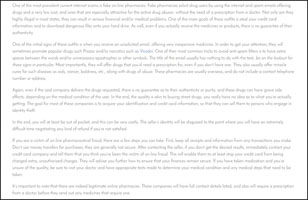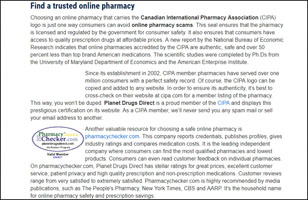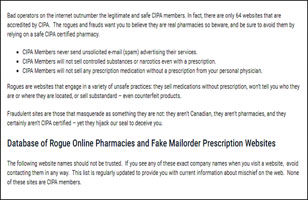Pharmacy Scams
Guard your health against online pharmacy scams. Uncover the world of counterfeit drugs, prescription fraud, and health deception. Our guide empowers you to recognize and avoid pharmaceutical scams, ensuring your well-being in the digital pharmacy realm. Feel free to adjust these based on the specific focus and tone you'd like for your Pharmacy Scams website.
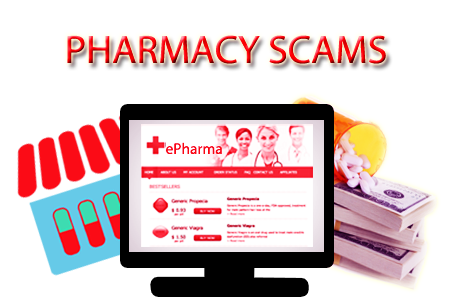 Health fraud scams, particularly in the realm of pharmacies, have become pervasive, often manifesting through websites or emails that offer products without requiring a
prescription. These illicit pharmacy operations often operate outside the bounds of state and federal laws, occasionally masquerading as entities affiliated with the National
Association of Boards of Pharmacy.
Health fraud scams, particularly in the realm of pharmacies, have become pervasive, often manifesting through websites or emails that offer products without requiring a
prescription. These illicit pharmacy operations often operate outside the bounds of state and federal laws, occasionally masquerading as entities affiliated with the National
Association of Boards of Pharmacy.
To unravel these deceptive pharmacies, it is crucial to be discerning and take note of the red flags provided below. Refrain from endangering yourself and your family by
avoiding the purchase of medicines from sites not recommended or lacking proper accreditation.
As senior citizens and the elderly remain particularly vulnerable to these schemes, it is imperative to stay abreast of evolving tactics employed by fraudulent pharmacies.
Regularly verify the legitimacy of online pharmacies, exercising caution when encountering unsolicited emails or websites offering medications without appropriate medical
oversight.
Promote awareness within your community to contribute to the collective effort against health fraud. Together, we can foster a safer online environment and shield individuals
from falling prey to these detrimental schemes.
The Elaborate Web of Pharmacy Scams Unveiled
Pharmacy scams have become a pervasive issue, casting a dark shadow over the online pharmaceutical landscape. These deceptive operations often use websites or emails to offer products without the need for a prescription, exploiting unsuspecting individuals looking for convenient healthcare solutions. The scams go beyond merely selling questionable medications; they pose serious risks to consumers' health and finances.
One common tactic employed by pharmacy scam websites is to present themselves as compliant with state and federal laws or falsely associate with reputable organizations like the National Association of Boards of Pharmacy. These deceptive practices are intended to build trust with potential victims.
However, navigating this intricate web of deception requires vigilance. Recognizing red flags is crucial for safeguarding oneself and loved ones. Some key indicators of pharmacy scams include:
- Receiving unsolicited emails offering discounted or hard-to-obtain pills or treatments.
- Being able to purchase medications without a prescription, even when one is typically required.
- Encountering a pharmacy website that appears professional but lacks contact details, especially if it's based overseas.
While the scams are a cause for concern for everyone, they pose a particular threat to senior citizens and the elderly who may be more vulnerable to manipulation. It's imperative to stay informed about these scams and take proactive measures to avoid falling victim to these fraudulent operations.
Despite the convenience promised by online pharmacies, the risks associated with counterfeit drugs containing little to no active pharmaceutical ingredients are substantial. The potency and efficacy of such drugs can vary dramatically, putting consumers at significant health risks.
As the online landscape continues to evolve, staying educated about pharmacy scams and learning to identify their telltale signs is the first line of defense against these fraudulent schemes.
Navigating Risks: Online Pharmacy Scams Unveiled
While the convenience of purchasing medications from online pharmacies may offer a sigh of relief, the safety of this avenue remains questionable. An alarming number of companies engage in the production of medicinal drugs that contain little to no active pharmaceutical ingredient (API). Investigations into pharmaceuticals acquired from counterfeit online pharmacies have exposed a disconcerting reality — the potency and efficacy of the delivered drug can fluctuate outrageously.
This discrepancy in the quality of medications poses a significant risk to consumers, jeopardizing their health and well-being. The lack of stringent regulations and oversight in the online pharmaceutical landscape underscores the need for heightened vigilance. Individuals must exercise caution and thoroughly research the legitimacy of online pharmacies before making any medication purchases.
As we navigate this complex terrain, it is imperative to advocate for robust regulatory measures and promote awareness regarding the potential hazards associated with counterfeit medications. By staying informed and fostering a collective commitment to safety, we can contribute to safeguarding the well-being of individuals relying on online pharmacies for their healthcare needs.
Red flags that a product's health claims are bogus
Maintaining vigilance when purchasing prescription drugs online is crucial for ensuring safety and authenticity. Always be on your guard and educate yourself about the red flags that indicate potential risks. By staying informed and recognizing these warning signs, you can navigate the online landscape more securely and make informed decisions about buying prescription drugs over the internet.
- Receiving unsolicited mail advertising discounted or rare pills or treatments is a clear red flag.
- The website may offer medications that typically require a prescription, even if you don't possess one.
- If the pharmacy's seemingly professional website is based overseas and lacks contact details, exercise caution.
Violating the Can-Spam Act, the growing list of fake online pharmacies also engages in additional illegal activities. These deceptive operations often distribute counterfeit or substandard medications, putting consumers at serious health risks. Moreover, they may steal personal and financial information, leading to identity theft and fraud. To safeguard yourself, it's crucial to stay vigilant, recognize the red flags, and only purchase medications from legitimate and authorized sources. As technology evolves, scammers become more sophisticated, making it imperative for consumers to stay informed and exercise caution when navigating the online pharmaceutical landscape.
- Copyright infringement: Unauthorized use of intellectual property.
- Falsification of doctor approval: Misleading claims of medical endorsements.
- Malware/intrusion: Spreading malicious software and unauthorized access.
- Money laundering: Illegal financial transactions to disguise the source of funds.
- False advertising: Deceptive or misleading promotional materials.
- Sale of non-FDA approved drugs: Offering medications not approved by regulatory authorities.
Stay vigilant and recognize these red flags to protect yourself from potential harm when dealing with online pharmacies.
Understanding the Proliferation of Online Pharmacies
One might wonder why there is such a surge in the number of online pharmacies. The answer lies in the perpetrators' ability to operate without ever meeting their customers. Exploiting the high demand for online pharmaceutical services, these individuals, often lacking any medical background, deceive unsuspecting individuals into paying for drugs they'll never receive or medicines that fail to live up to their claims. What's particularly distressing is that many "customers" remain unaware of the potential risks and offenses they might face. With numerous drugs being mass-produced globally without FDA approval, even those with valid medical prescriptions are left in the dark about the contents of the pills they order online, especially from uncertified sources. Law enforcement agencies are actively investigating these fraudulent online pharmacies that engage in the illicit sale of counterfeit pharmaceuticals to unsuspecting consumers.
If you suspect you've fallen victim to a scam, especially if you've provided account details to a scammer, it's crucial to contact your bank or financial institution immediately. Additionally, report scams to the FDA, providing details of the scam contact you received, such as emails or screenshots.
